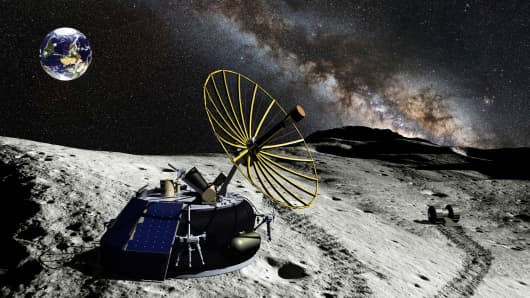Days Before Firing, Comey Asked for More Resources for Russia Inquiry
By MATTHEW ROSENBERG and MATT APUZZOMAY 10, 2017
 |
| The seal of the Federal Bureau of Investigation on the bureau’s J. Edgar Hoover Building in Washington. Credit Chip Somodevilla/Getty Images |
WASHINGTON — Days before he was fired as F.B.I. director, James B. Comey asked the Justice Department for more prosecutors and other personnel to accelerate the bureau’s investigation into Russia’s interference in the presidential election.
It was the first clear-cut evidence that Mr. Comey believed the bureau needed more resources to handle a sprawling and highly politicized counterintelligence investigation.
His appeal, described on Wednesday by four congressional officials, was made to Rod J. Rosenstein, the deputy attorney general, whose memo was used to justify Mr. Comey’s abrupt dismissal on Tuesday.
It is not yet known what became of Mr. Comey’s request, or what role — if any — it played in his firing. But the future of the F.B.I.’s investigation is now more uncertain than at any point since it began in late July, and any fallout from the dismissal is unlikely to be contained at the bureau.
The firing of James B. Comey as director of the F.B.I. has led several lawmakers to call for an independent investigator or commission on top of the current investigations into potential links between Russia and the Trump campaign.
Two separate congressional inquiries into Russian meddling are relying on evidence and intelligence being amassed by the F.B.I., and if the bureau’s investigation falters, the congressional inquiries are likely to be hobbled. Perhaps for this reason, Mr. Comey’s firing appears to have imbued the Senate Intelligence Committee with a renewed sense of urgency.
The committee issued its first subpoena in the Russia investigation on Wednesday, ordering Michael T. Flynn, President Trump’s former national security adviser, to hand over records of any emails, phone calls, meetings and financial dealings with Russians.
It was an aggressive new tack in what had been a slowly unfolding inquiry. A day earlier, the Senate panel began pressing a little-known government bureau that tracks money laundering and terrorism financing for leads in the Russian investigation.
Senator Richard M. Burr of North Carolina, the Republican chairman of the Intelligence Committee, and Senator Mark Warner of Virginia, the Democratic vice chairman, also invited Mr. Comey to testify in a closed session — a setting that would allow Mr. Comey to discuss classified information and any meetings he held with superiors at the Justice Department or with Mr. Trump. Mr. Comey has not yet said whether he will attend.
The Senate’s rush to press forward with its investigation set up a potential showdown with the Trump administration over the future of the F.B.I. investigation. While it appears unlikely that the Justice Department or the White House would move to shutter the investigation outright, the president and other administration officials have called for it to end, sowing concerns at the F.B.I. and among some in Congress that it could be starved of needed resources.
Still, the White House insists that Mr. Comey’s dismissal had nothing to do with the Russia investigations, and Sarah Isgur Flores, the Justice Department spokeswoman, said that “the idea that he asked for more funding” for the Russia inquiry was “totally false.” She did not elaborate.
But Democrats were unconvinced, and Mr. Comey’s firing was quickly taken up as Exhibit A in the case for the Justice Department to appoint a special prosecutor to take over the case.
“I’m told that as soon as Rosenstein arrived, there was a request for additional resources for the investigation, and that a few days afterward, he was sacked,” said Senator Richard J. Durbin, Democrat of Illinois. “I think the Comey operation was breathing down the neck of the Trump campaign and their operatives, and this was an effort to slow down the investigation.”
According to the congressional officials, the Senate Intelligence Committee learned of Mr. Comey’s request on Monday when Senators Burr and Warner asked the F.B.I. director to meet with them. They wanted him to accelerate the bureau’s investigation so they could press forward with theirs. Congressional investigators do not have the authority to collect intelligence that agencies like the F.B.I. and the C.I.A. possess.
Mr. Rosenstein is the most senior law enforcement official supervising the Russia investigation. Attorney General Jeff Sessions recused himself because of his close ties to the Trump campaign and his undisclosed meetings with Russia’s ambassador to the United States.
At the meeting with the senators, Mr. Comey said he had made the request because he believed the Justice Department had not dedicated enough resources to the investigation, a fact partly stemming from the unusual situation under which the inquiry was being run. Until two weeks ago, when Mr. Rosenstein took over as deputy attorney general, the investigation was being overseen by Dana Boente, who was acting as the deputy and had limited power.
As recently as last week, Mr. Comey said he hoped he would find a supportive boss in Mr. Rosenstein. In congressional testimony last week, Mr. Comey called Mr. Rosenstein “a very independent-minded, career-oriented person” and said he had briefed Mr. Rosenstein on the Russia investigation on his first day in office.
To a president who puts a premium on loyalty, Mr. Comey represented a fiercely independent official who wielded enormous power. But if the White House was hoping Mr. Comey’s firing would provide relief from the pressure of the Russia investigations, the Senate Intelligence Committee appeared eager to fill any temporary void.
Late last month, it asked a number of high-profile Trump campaign associates to hand over emails and other records of dealings with Russians, and the committee’s subpoena of Mr. Flynn on Wednesday made good on its threat to legally compel anyone who failed to voluntarily comply with its request.
Russia’s efforts to meddle in the presidential election are also likely to be a focus of the Senate Intelligence Committee’s annual hearing on worldwide threats on Thursday, which is ordinarily a wider-ranging and policy-focused event.
Both Mr. Warner and Senator Ron Wyden of Oregon — the ranking Democrat on the Finance Committee with jurisdiction over the Treasury Department and also a member of the Intelligence Committee — have said they will block the confirmation of Sigal Mandelker, Mr. Trump’s nominee to be the top Treasury official for terrorism and financial crimes, until the network delivers the information.
“I have stated repeatedly that we have to follow the money if we are going to get to the bottom of how Russia has attacked our democracy,” Mr. Wyden said on Wednesday. “That means thoroughly review any information that relates to financial connections between Russia and President Trump and his associates, whether direct or laundered through hidden or illicit transactions.”
The little-known bureau, which operates out of a toilet bowl-shaped building in the suburbs of Washington, serves as the financial intelligence network of the United States, gathering and maintaining a vast collection of data on transactions and suspicious financial activity that can yield valuable leads and help expose hard-to-find networks.
The financial crimes network would not confirm its participation in the inquiry, in line with its policy not to comment on investigations or even confirm that they exist, said Steve Hudak, a spokesman.
But financial intelligence experts, including several former employees of the bureau, said its database, which contains more than 200 million records, can be a treasure trove of information about financial ties between individuals and companies for law enforcement agencies pursuing complex investigations.
















